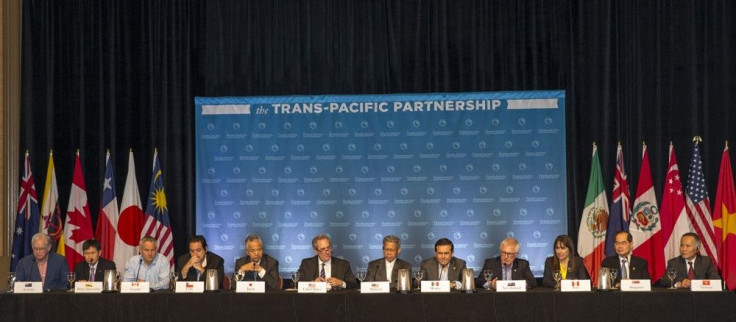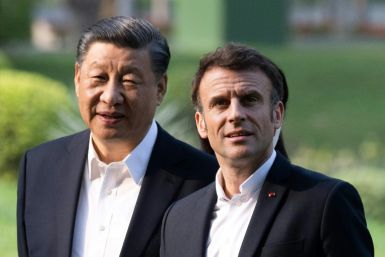Final 'subject to legal review' TPP agreement text released

The Trans-Pacific Partnership (TPP) member countries have finally released the trade deal rules. The agreement, after mutual negotiations, was given to the member nations in October.
The New Zealand government released the terms included in the world’s largest free trade agreement online on Thursday. According to the final agreement text, each of the 12 TPP nations -- Australia, Canada, Japan, New Zealand, Malaysia, Mexico, Peru, Vietnam, United States, Chile, Brunei and Singapore -- would offer national treatment to and market access products under Article III of the General Agreement on Tariffs and Trade 1994.
There would be no customs duties charges applicable for the original products offered by the member countries unless specifically mentioned within the agreement. There would also be no custom duties charged for the products that re-entered the market after alteration or repair.
A duty-free entrance would be allowed for the commercial samples presented to the member nations, which would also be applicable for advertising materials.
However, the full text of the TPP deal has been marked as “subject to legal review” so that provisions which seem irrelevant could be removed or altered according to the member nations’ requirements.
As far as the e-commerce chapter of the text is concerned, non-profit consumer rights organisations found the TPP agreement a serious threat to online users’ privacy. Tech Crunch quoted Peter Maybarduk from the non-profit consumer rights organisation Public Citizen as saying, “The text reveals that policies protecting personal data when it crosses borders could be subject to challenge as a violation of the TPP.”
Meanwhile, Australian Trade and Investment Minister Andrew Robb praised the points put forward in the TPP deal after months of negotiations among the member nations.
“Along with the landmark North Asian bilateral trade agreements we have concluded with China, Japan and South Korea, the TPP forms a transformational series of agreements that will contribute substantially to the diversification of our economy in this critical post mining boom phase. This will reduce our reliance on any one sector or any one market, regardless of how strong they are,” Robb said.
In addition, the United States believes that the TPP will make it easier for entrepreneurs, small business owners and farmers to sell made-in-America products throughout the world with over 18,000 taxes removed.
Critics noted that the member countries were forced to sign the agreement, which they claimed is secretive, in an all-or-nothing vote.
Contact the writer at feedback@ibtimes.com.au, or let us know what you think below.






